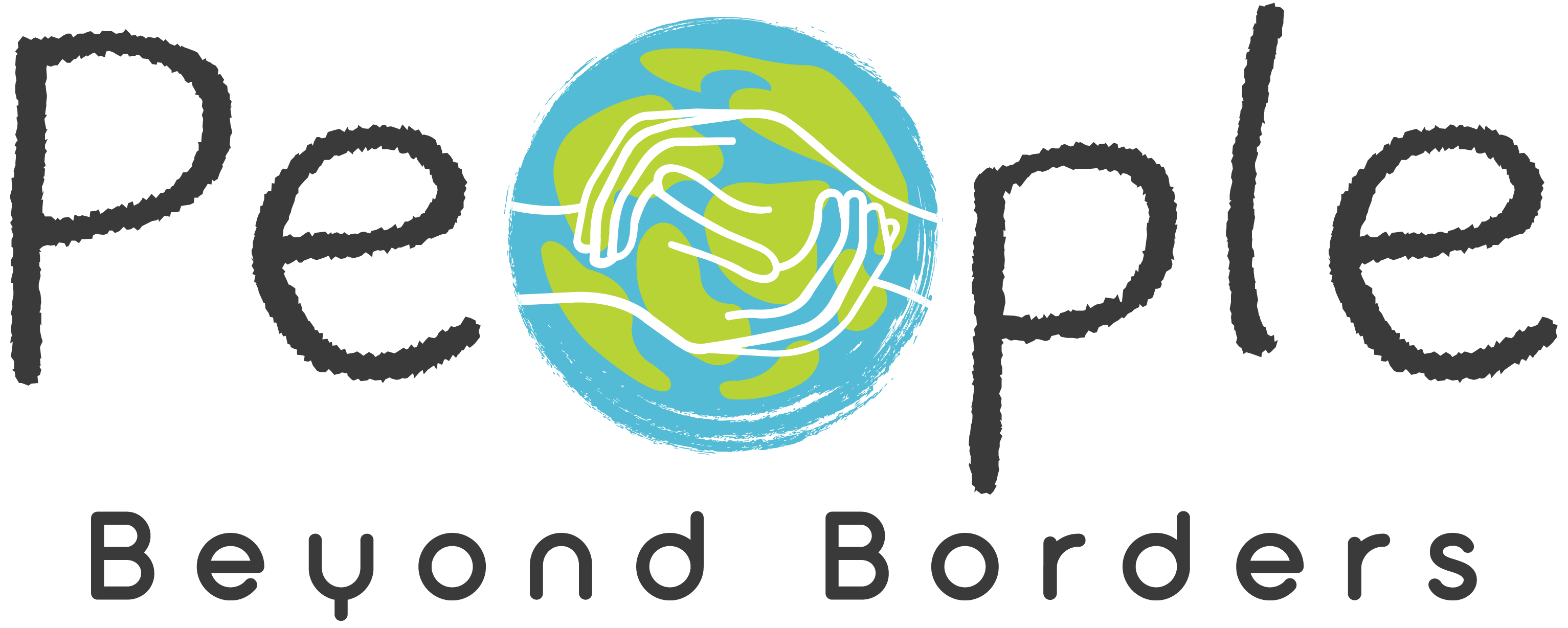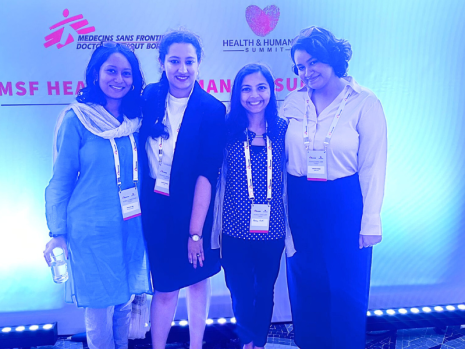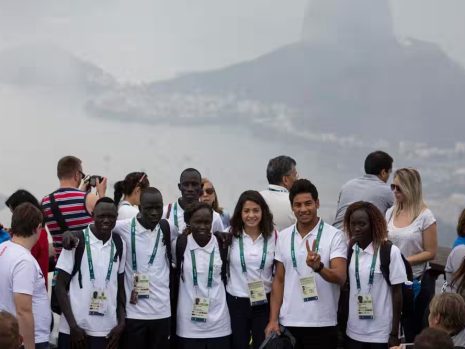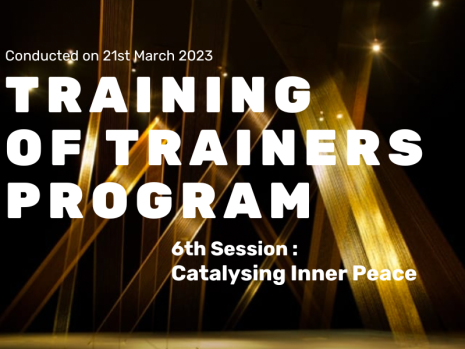This is the fourth blog in PBB’s human library series. People Beyond Borders’ work is rooted in cultural and ethnographic approaches to migration, displacement and the humanitarian sector. Instead of interpreting stories, we seek to really listen to it from the person living it with a hope to un-judge a book by its cover through our human library-styled series.
Education is essential for the development and progress of all individuals and it is particularly important for young girls and women who have historically been marginalized and excluded from educational opportunities. Education is one of the most effective ways to empower young girls and women, enabling them to become more independent, confident, and capable. When girls and women are educated, they are better able to make informed decisions about their lives and futures, and they are more likely to have the skills and knowledge they need to succeed in the workforce and in society.
Adequate opportunities and passionate facilitators are necessary to impart education in the society, however it becomes increasingly difficult in conflict situations. The de-facto government in Afghanistan has recently banned education for girls and women post sixth grade onwards. This has caused many hardworking students and their teachers much pain. While female students are struggling to look for ways to keep learning, their teachers are looking for ways to help them thrive.
Prerna and Tanya from team PBB had the opportunity to interact with one such academician, Mr. Abdul-Hakim Gouhary Parwani, who is an English teacher and humanitarian at heart. With over 10+ years of experience being a teacher, he has dedicated most of his life to the upliftment of children in his country, Afghanistan. A passionate do-gooder at heart, he has founded his own academy (Gouhary Academy) as well.
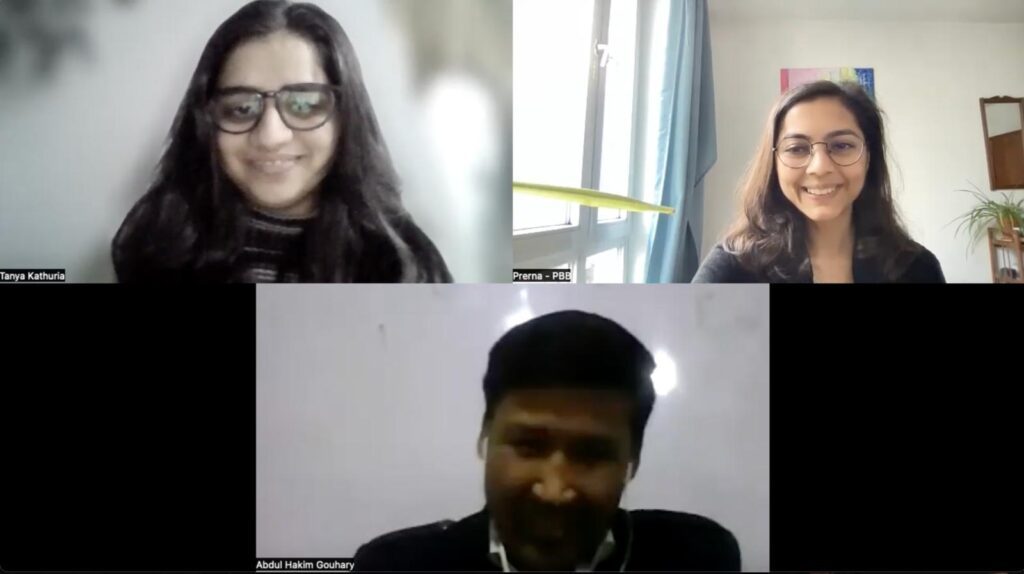
He has worked with many establishments including Education Centers, Colleges, Universities, Afghan Youth Empowerment, Peace Building Organization and Afghan Youth Empowerment Camps among others. His work with Afghan Youth Empowerment and Peace Building Organization includes training young girls and women to become leaders for the future by imparting knowledge on stress management, vocational training, IT skills etc. Abdul believes in the power of holistic learning, not just the traditional textbook!
His work is mainly focused on youth empowerment and through his work at Afghan Youth Organisation, he is also helping young girls and boys learn the basics of entrepreneurship so that they can one day, sustain their own business.

“I really believe that more than half of the changemakers in the world will be young girls and women” – Ab-Hakim
Ab-Hakim mentions how the restrictions in the country have negatively affected young girls and how disheartening it has been for the academic society to see it happening. He says, “I try to come up with non-formal ways to help them, even if it’s just a simple presentation or talk/training that they can attend once a week”. He mentions how restrictions on education are not the only problem but financial conditions are worsening day by day and that further hampers upliftment of women.
Ab-Hakim believes vocational training can really help young girls in local neighborhoods (for example through tailoring) but it is still difficult to run such a thing when there are so many questions and obstacles for women to even gather in a single place.
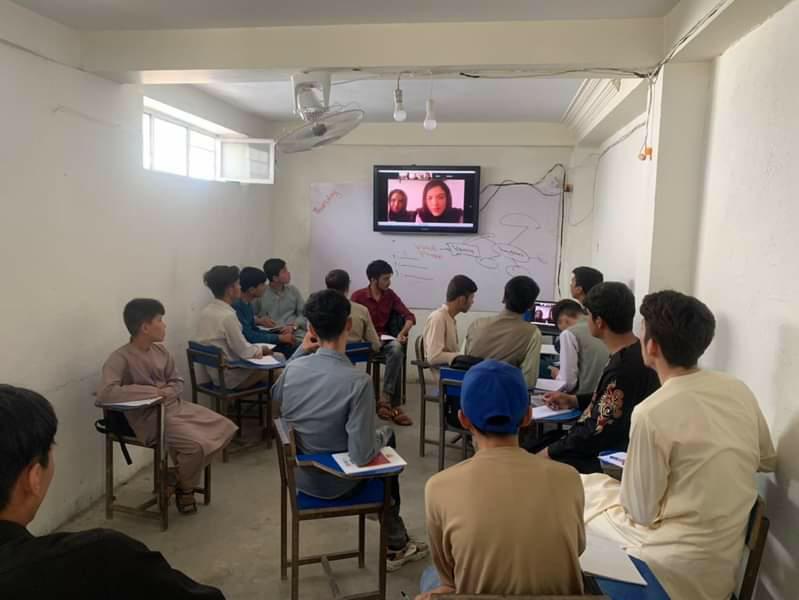
It is an unsaid fact that education is an important factor in creating economic opportunities for young girls and women in Afghanistan. When women are educated, they are more likely to have access to better-paying jobs, and they are more likely to be able to start their own businesses. This not only benefits individual women and their families, but it also contributes to the overall economic growth and development of the country. However, teachers like Ab-Hakim are also helpless but hopeful when it comes to the current situation.
“It is easy to go, but what if we stay? What will change if I leave? If I stay in Afghanistan, I can help change something and help spread what I have learned. I think this is my compensation to my country.. This is what will help humanity!”, says Ab-Hakim on being asked what keeps him motivated in such a situation. From humble roots, Ab-Hakim is one of the few people who is so empowering and spreading his light everywhere he goes.
Ab-Hakim recounts how getting into the education professional was an absolute fluke – he had never thought it to be something he could do. On some encouragement from a former professor, he started his journey and received positive responses on his teaching methodology.

“Students before us and now have been victims of the traditional system of teaching. The teaching materials are obsolete and the testing is another problem, scoring like this is not an accurate way to judge their intellect. Another thing that I would encourage is a co-education system as it encourages healthy competition and motivation equally. The system was actually forcing me to be a doctor but I became an educator! We need to change the system!” – Ab-Hakim
We are ecstatic to have interacted with such an amazing person like Ab-Hakim who has given us so much to think about in so little time.
Education is indeed empowering and so are educators!
